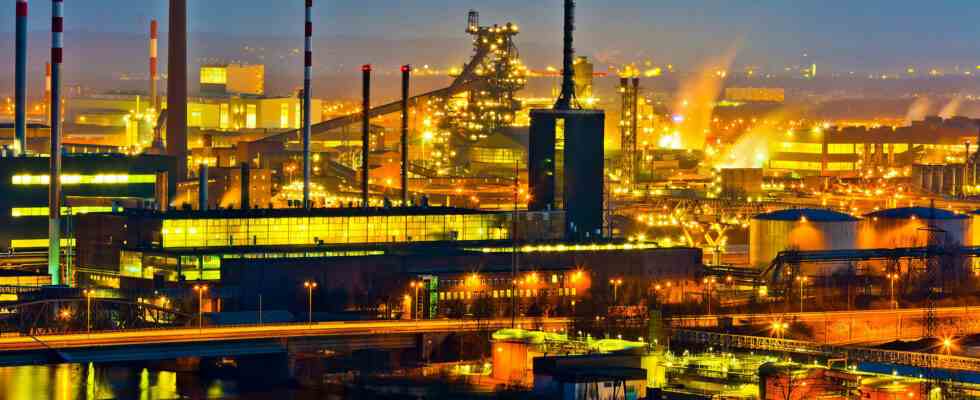Status: 07/25/2022 11:20 a.m
Due to high energy prices and the threat of gas shortages, the mood in the German economy deteriorated significantly in July. The ifo index fell to its lowest level in two years.
The mood in the executive floors of the German economy deteriorated more than expected in July. The ifo business climate index slipped from 92.2 points in the previous month to 88.6 points, as the Munich ifo institute announced today in its survey of around 9,000 managers. This is the lowest value since June 2020.
Economists polled by Reuters had only expected a decline to 90.2 points. “High energy prices and the threat of gas shortages are weighing on the economy. Germany is on the brink of recession,” said ifo President Clemens Fuest. The ifo business climate is considered Germany’s most important leading economic indicator.
Gas crisis, supply problems, high inflation and a turnaround in interest rates are a burden
Specifically, the business climate deteriorated in all economic sectors considered, and significantly: In industry, pessimism about the future is greater than it has been since April 2020. “This runs through almost all branches of industry,” says Fuest. The mood among service providers turned again after great optimism, including in the tourism and hospitality sectors. In June, the ifo index unexpectedly fell significantly after two increases in a row.
Managers were also more skeptical than recently about their business situation and expectations. According to the Bundesbank, the economy hardly moved in the spring. The purchasing managers’ index for the private sector – industry and service providers together – recently also pointed to a downturn. It fell below the growth threshold of 50 jobs for the first time since February 2021, S&P Global announced on Friday in its monthly survey of thousands of companies.
Several developments are currently weighing on the German economy. The risk of a natural gas crisis, ongoing supply problems in foreign trade and high inflation are likely to weigh most heavily. In addition, there are rising capital market interest rates, which increase the borrowing costs of companies and consumers and thus dampen investment and consumer spending. Last week, the European Central Bank (ECB) raised interest rates for the first time in eleven years.
Recession would be ‘inevitable’ if gas stopped
Bank economists commented on the ifo survey with little hope. The development is not surprising, said VP Bank chief economist Thomas Gitzel. Even if gas is currently flowing from Russia, which is ruled by President Vladimir Putin, in limited quantities, the sword of Damocles “complete gas stop” hangs over the economic outlook. “A recession can hardly be avoided.” The burdens of high inflation, the looming energy crisis and supply chain difficulties are too much.
“All in all, the German economy is probably already in a downturn,” emphasized Jörg Krämer, chief economist at Commerzbank. How bad it gets in the end is primarily in the hands of Putin. “If gas supplies stopped completely, a deep recession would be inevitable.”
Ifo expert Klaus Wohlrabe also fears uncomfortable times for the German economy. “The recession is knocking on the door, that can no longer be ruled out. But if Putin keeps delivering like this, there will be no recession,” he told Reuters.

